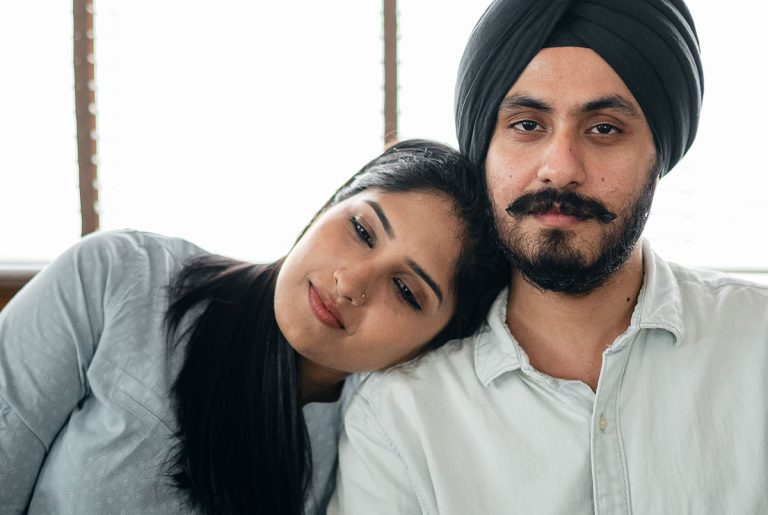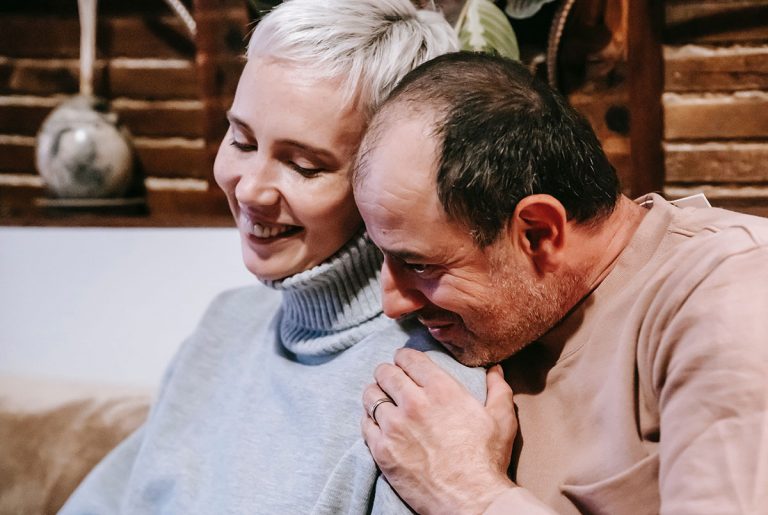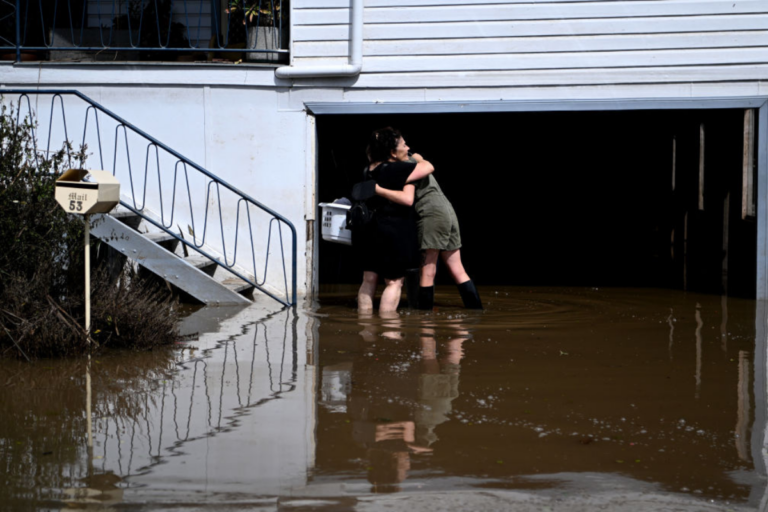Starting a new relationship can bring with it great excitement and high expectations. We’ve put together our top advice to help your new relationship get off to the right start, so you can build better, more successful long-term relationships.
Healthy relationships are wonderful things – and can feel particularly lovely when they’re new. Emotions often run high at the beginning of a relationship, life seems rosy, and we want the relationship and the intensity to last forever.
However, as we move into new relationships, we bring with us our attachments and commitments to others – our families, ex-partners, children and friends – and our own beliefs and expectations.
This means that as a romantic relationship develops over time, we may need to make adjustments to these other important connections – and to the relationship itself.
With shared relationship goals, kindness and communication, we can keep at least some of that ‘honeymoon period’ magic alive, while not losing sight of our own interests, values and aspirations.
Get to know yourself first
We may need to make big life decisions before starting a new relationship. It’s good to know what’s important to us as individuals – and what may be negotiable.
Of course, in making these decisions, we often have to find ways to balance our needs with those of others such as our partners, families, friends and work.
Questions we should ask ourselves about our life goals and values include:
- What kind of romantic or intimate relationship do I want?
- What career, course or job do I want to pursue?
- Do I want to get married?
- Do I want to have children?
- If I do have children, do I want to then work full-time, part-time or not at all?
Decide what a fulfilling relationship looks like to you
A good adult relationship is one in which both people have equal rights, equal opportunities and equal responsibilities. Essentially, good relationships are based on each person respecting the other and being able to communicate clearly.
Different people have different definitions of what a fulfilling, intimate relationship means for them. Some of the things we may expect in a romantic relationship could include:
- Love
- Intimacy and sexual expression
- Communication
- Commitment
- Equality and respect
- Compatibility
- Companionship
- Emotional support
- Exclusivity
- Loyalty
Remember – there’s almost always a honeymoon period
The honeymoon period is a fun and exciting time in any new relationship. It’s different for everyone and can last between six months and two years. You’re falling in love, learning more about the person you care about, and embarking on new adventures together. Feelings can be intense and you want to be with your partner as much as possible.
However, during this period you may focus solely on your partner’s strengths and positive qualities, rather than your differences, or even the things that might upset you. For this reason, it can often be best to avoid making big, permanent life or financial decisions with your partner very early on. These can always be discussed once you have a deeper understanding of your partner and your long-term relationship together.
Take the time to learn about your partner’s life and relationship needs
You could ask your partner to write down the five qualities or needs that are most important for them in a relationship. Look at the list and see which of these needs align with your own, and which ones you may have to negotiate or compromise on with your partner.
It’s essential that each partner tries to understand and respect the other person’s needs, as they can be very different from our own. We don’t all want the same things out of life, and that’s ok.
You could also each make a list of your goals and aspirations and take the time to revisit those lists as the relationship progresses. It’s ok if these things change over time too.
Don’t shy away from talking about intimacy
There are a wide range of issues that should be discussed in intimate adult relationships. While it may be uncomfortable at times, getting used to talking openly about sex and sexuality early on in your relationship will help set you up for better communication into the future.
Questions you could ask each other in the early stages of a relationship include:
- How much time are we going to spend together and how much time are we going to spend doing things separately?
- What do we expect from each other when it comes to loyalty, trust and sexual faithfulness?
- What do we both like or dislike about our sexual relationship so far?
- How will we constructively work through any sexual blocks or ruts we may experience in the future?
Make time to talk about how your relationship is going
If you want to know if your new relationship is healthy – or if you may need to make changes – ask yourself the following questions. It may be useful to check your answers with your partner:
- How well do you think your partner understands you – how you think, how you feel and what’s important to you? Have you told them this in the past?
- How well can the two of you discuss a difficult issue?
- How often do you argue? If you have many arguments that you don’t resolve, there may be communication problems. Lots of arguments over trivial issues might also be a sign of a power struggle. If you never have any arguments, is it because you’re avoiding important issues due to a fear of conflict?
- What interests do you have in common?
- What do you do together for fun and relaxation, and how often do you do something enjoyable as a couple?
Prioritise open communication
To encourage open communication, each person must first acknowledge and accept responsibility for their own feelings. The only thing we have control over is our own thoughts, attitudes and actions.
- Set aside time for both of you to talk. Discussing each other’s behaviours and actions, and how they affect you, is the first step.
- Try to be honest and tell your partner exactly what you’re feeling and thinking, even if it might upset them.
- State what you want and be prepared to negotiate.
- Don’t forget – change can be painful and scary, so let your partner know that you understand this.
- Listen to your partner; put aside your own thoughts for the time being and try to understand their intentions, needs and wants.
Maintain your autonomy and other important connections
In life, we get support and a sense of purpose from enjoying a range of relationships and activities, whether from our families and friends to book clubs and swimming groups. Many couples fall into the trap of expecting our partners to provide our entire sense of worth and fulfilment in life.
That’s why when starting a new relationship, it’s important to maintain your independence and sense of self. It’s a good idea to keep putting effort into your own friendships, interests and hobbies, and feel comfortable having time for yourself.
Taking time to nurture and enjoy our lives outside of our partner’s, especially when in the honeymoon period of a new relationship, will ensure we feel a connection with more than just our partner.
When difficulties inevitably arise
As a new relationship grows and evolves, and we learn more about our partner’s needs, there may be moments of disagreement and negotiation. This can be difficult as many of us experience intense feelings during this time of change.
These may include fear of loss, jealousy, guilt and concern about whether our new partner will be accepted or rejected by our closest family members and friends. But differences resulting in conflict or misunderstanding can occur in every relationship that’s important to us. Being able to handle this conflict in a safe and supportive way, and deal with the differences that arise, is vital when establishing healthy, long-term relationships.
Remember that there’s always professional help available, and it can be beneficial to see a couples counsellor even early on in a relationship. The stronger your foundations, the stronger your relationship will be over the long term.
Relationships Australia NSW specialises in helping both new and long-term couples improve their relationships through our couples counselling services. We also run regular Couples Communication group workshops at various locations throughout NSW, as well as online. Find out more here.
Related Services & Workshops

Counselling.Couples.Mental Health.LGBTQIA+
Couples Counselling
Relationships can be tough, and sometimes we all need some extra support and guidance to help us move forward. Couples Counselling at RANSW offers a supportive environment where you can discuss concerns, overcome tensions and strengthen your partnership.

Group Workshops.Couples.Communication
Couples’ Communication
A group workshop for couples who want to develop new and effective ways of communicating with each other. Learn tools and gain new skills to deal with challenges and strengthen relationships.

Counselling.Couples.Life Transition
Prepare and Enrich
It’s normal to experience mixed emotions when embarking on the next phase of a relationship. Whether you’re excited, anxious or somewhere in between, Prepare and Enrich will help empower and strengthen your partnership into the future.





